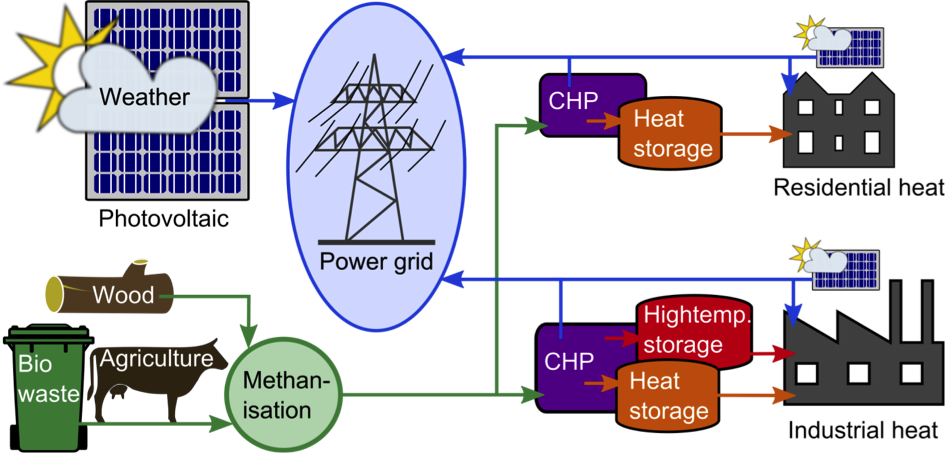Potential of biogenic combined heat and power generation in Switzerland: Project CHPswarm for power-on-demand
Project CHPswarm investigated the role, Combined Heat and Power (CHP) may play in the future Swiss energy system relying on biogenic fuels from sustainable biomass. CHP refers to an energy conversion process, producing both useful heat and electricity at the same time.

In principle, any energy converter could form the heart of a CHP system while gas-fired internal combustion engines offer fast response time in minutes paired with a high overall efficiency. The primary interest were the energy systemic potential of a whole swarm of distributed CHP plants relying on fuel from sustainable biomass. Regional case-studies were combined with energy-economic modelling on the national level. The case-studies investigated the biomethane production potentials within the boundaries of the study region. Then, softly coupled simulations of the swarm, the buildings and industrial processes they provide with heat and the electric grid were run to explore the technical feasibility and the potential to compensate fluctuating photovoltaic generation. On the example of the case-study of Lucerne, it was shown that a swarm consuming all the biogenic resources in the canton can provide circa 100 MW of electrical power covering 20% of the heat and 10% of the electricity demand. Even though the operation units were operated completely agnostically of the state of the electric grid, no capacity constraints in the grid were exceeded at any time. The economic analysis revealed that CHPPs are to play an important role if natural gas prices become high, or climate policies stringent.
Project collaborators:
- Laboratory for Aerothermochemistry and Combustion Systems, ETH Zurich
- Geo-Engineering, ETH Zurich
- Forschungsstelle Energienetze, ETH Zurich
- external page Energy Economics Group PSI
Funding: swisselectric research, Swiss Federal Office of Energy
See project report for further information: BFE energy-research database publication number 291096 (project number 500817) direct link: external page http://bit.ly/1qnnMYB